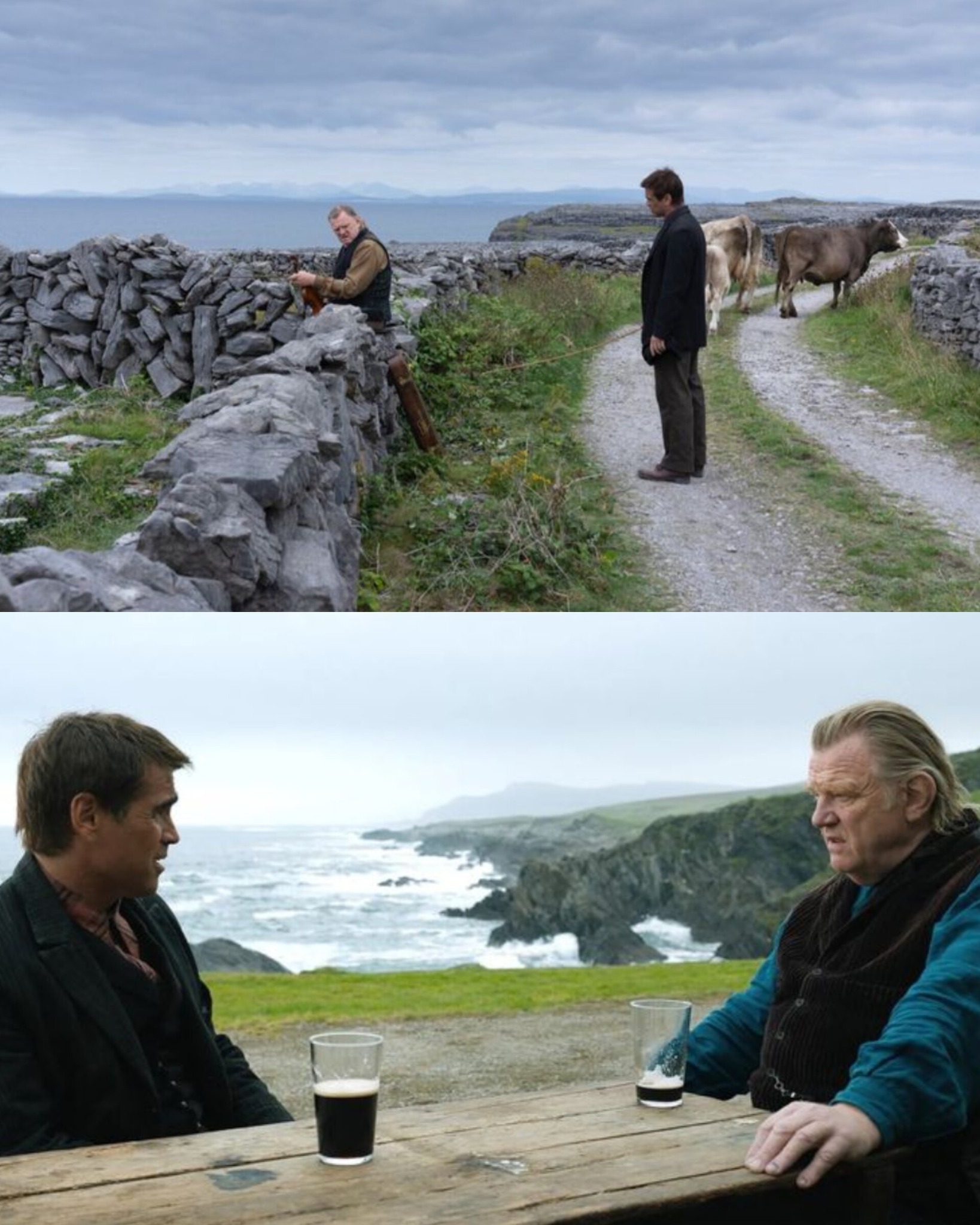is a hauntingly poetic and darkly humorous meditation on loneliness, pride, and the slow unraveling of friendship and identity. Set on a remote Irish island in 1923, Martin McDonagh’s film reunites Colin Farrell and Brendan Gleeson (from In Bruges) in roles that are deceptively simple yet emotionally devastating.
Farrell plays Pádraic, a kind-hearted but dull man whose world shatters when his lifelong friend Colm (Gleeson) abruptly ends their friendship without reason. Colm, a brooding folk musician, has decided he no longer wants to waste his remaining days in idle chatter. This seemingly minor personal conflict escalates into absurd and tragic territory, as Pádraic desperately tries to make sense of the rejection.

The film blends McDonagh’s trademark wit with a slow-burning existential melancholy. The backdrop of the Irish Civil War—visible only in distant gunfire across the sea—mirrors the senseless emotional warfare between two men unable to reconcile. The island setting feels timeless, mythical, and claustrophobic, populated by eccentric, lonely souls who speak in sharp, lyrical dialogue.

Kerry Condon, as Pádraic’s sister Siobhán, brings quiet strength and modern clarity to a world stuck in emotional stasis. Barry Keoghan, as the troubled Dominic, offers a heartbreaking portrait of neglected youth.
What makes The Banshees of Inisherin so affecting is how it captures the pain of being dismissed—not violently, but quietly, coldly. It’s about the wounds people inflict when words fail, about the absurd lengths men go to in order to avoid vulnerability.

Farrell delivers one of his finest performances: tender, confused, and tragic. The film is a folk fable dipped in sadness, beauty, and irony—a breakup story between friends that unfolds like a slow elegy for lost connection in a crumbling world

